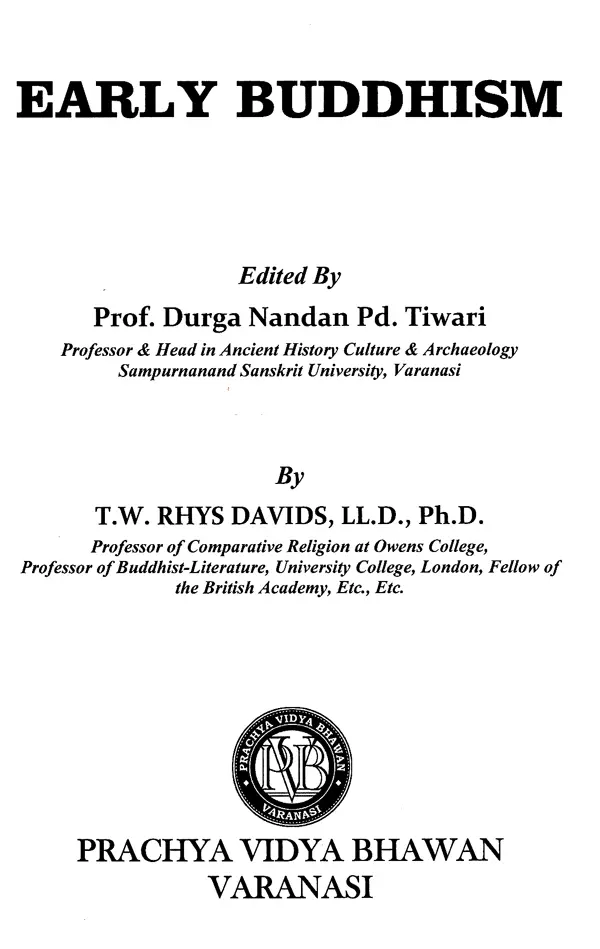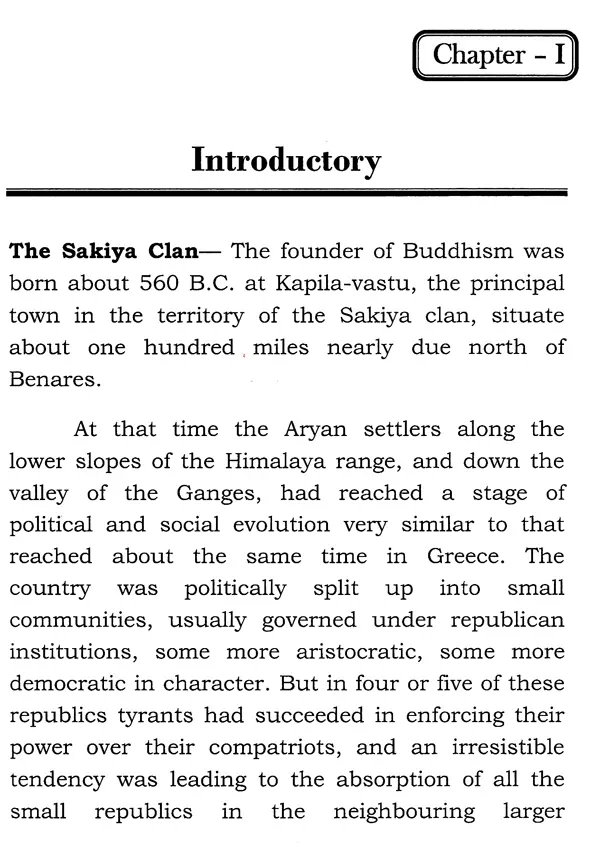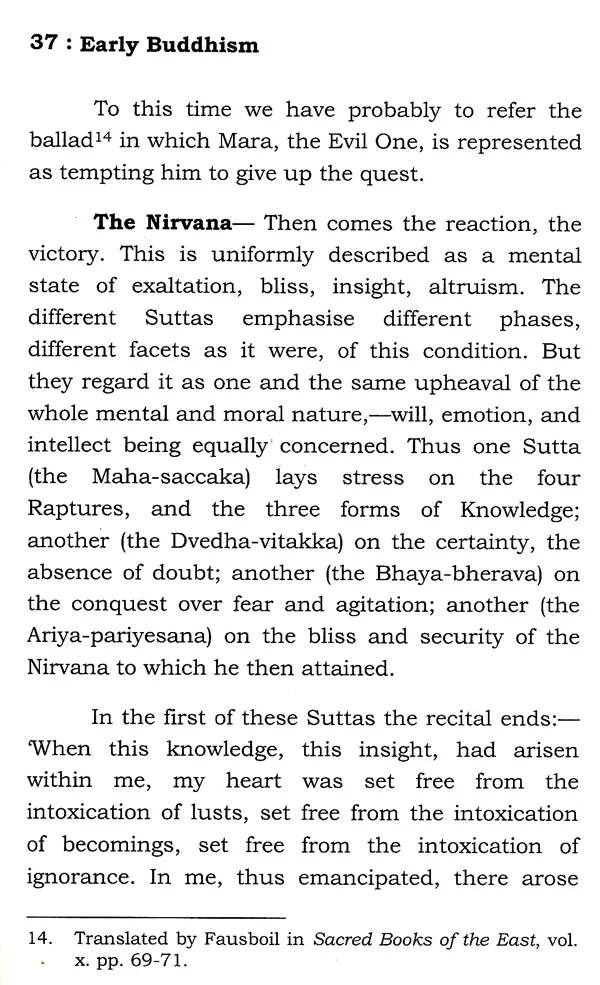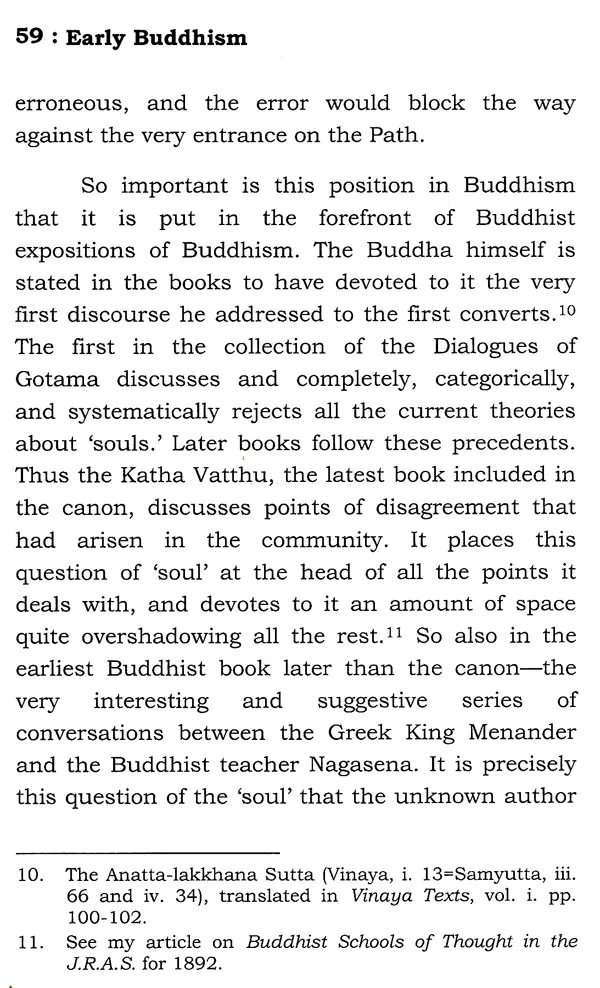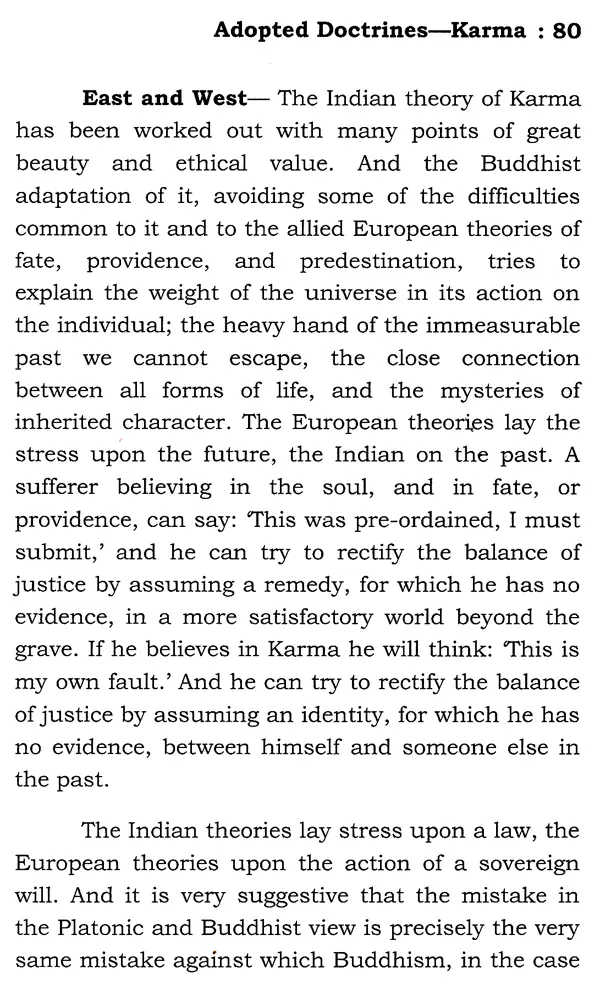
Early Buddhism
Book Specification
| Item Code: | UAM994 |
| Author: | Prof. Durga Nandan Pd. Tiwari |
| Publisher: | Prachya Vidya Bhawan, Varanasi |
| Language: | English |
| Edition: | 2018 |
| ISBN: | 9789387306028 |
| Pages: | 90 |
| Cover: | HARDCOVER |
| Other Details | 8.90 X 5.90 inch |
| Weight | 270 gm |
Book Description
No such traces have yet been found of development in fundamental doctrine. The balance of probability is therefore in favour of the tradition having preserved the actual views of Gotama himself; and very possibly the expressions he used. But even if we adopt the more difficult hypothesis, and suppose that the tradition embodies the views of the early disciples, and that they invented these utterances, put forward by them as the first discourse of their Master even then we have in these words the oldest and most authoritative statement of Buddhist doctrine that we possess.
Simeon, by the acclaim of the populace, became a saint even before he died. Diogenes, and his parallel in India, Mahavira the Jain, founded important schools that have left their mark in history. In Greece it was the sophists and the philosophers, rather than the ascetics, who came to be the acknowledged leaders of opinion. In India, it was the newer method of the Wanderers that received, and mainly, as we shall see, through the influence of Buddhist teaching, the higher recognition.
There was a strong feeling on the part of the Aryans of the superiority of their race. But this feeling had not prevented, and did not then prevent, a intermarriage.
This was a pleasaunce half way between Kapilavastu and the chief town of the Koliyans, neighbours and relatives of the Sakiyas. The later explanation, that his mother was then on her way to be confined at her mother's house, sounds very probable. The exact spot assigned by tradition to this event has lately been rediscovered.
The topmost height of insight will he reach, this child, he will see that which is most pure, and will set rolling the chariot wheel of righteousness, he who is full of compassion for the multitude.
There is nothing miraculous in it all, nothing supernatural. Supranormal it undoubtedly is. But recent researches in psychology, such as are summed up, for instance, in James's Varieties of Religious Experience, show that phenomena of a similar kind, though not quite the same, are well authenticated in the lives of men of deep religious experience. And no one of all the experiences described in these accounts is, in the canonical books, confined to the Buddha.
**Contents and Sample Pages**
